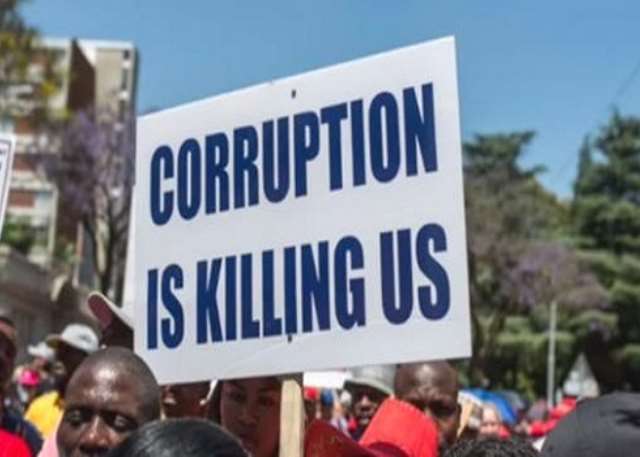Recent happenings in the Ghanaian political space have questioned the viability of democracy and how it could be used as a countermeasure to corruption. The general notion about democracy is that, it should provide solutions to corruption however, it appears democracy is rather aiding corruption.
Among the different tenets of democracy, participation is the most important, as the ideal of democracy is built around it. However, there are generally no defined rules about who qualifies to participate in the democratic process or not.
Typically, everyone except for children below the age of eighteen can engage in decision-making. What this criteria for participation results in is that it gives many people, who ideally should not engage in active politics, the opportunity to participate in politics.
Presently, the Ejisu by-election has recorded about ten contenders ready to be vetted to represent the constituency during the parliamentary elections on the NPP ticket. One such aspirant is the former President of the Ghana Football Association (GFA), Mr. Kwesi Nyantakyi.
For someone who has been embroiled in a massive corruption scandal and has admitted to paying bribe in exchange for the documentary regarding his act not being shown, it is alarming how the principles of democracy will give such a person a chance to hold public office again.
“For a long time, I shied away from active partisan politics. Since 2012, I have received several invitations from well-meaning people of Ejisu to contest and become their Member of Parliament (MP). The calls intensified again and this time, I am less busy and I want to give it a try. This is a way of porting my capabilities, and experiences in the arena of football administration to mainstream politics”.
Kwesi Nyantakyi.
The question then becomes, what is the assurance to Ghanaians that when given the opportunity the man who had abused public office once would not abuse it again?
As such the government and Parliament particularly must take active steps to ensure that corruption is not further perpetuated by ensuring that individuals vying to take public office are free of any corruption-related activities or allegations.
Corruption Occurrences In Governments

Furthermore, how democracy is practiced in Ghana encourages corruption at both the constituency and national levels.
The Ghanaian political system has a winner-takes-it-all mechanism that gives the victors in a political competition all access to state resources and nothing to the contender that comes out not victorious.
For instance, the government-forming parties in most governments of the Fourth Republic have unrestricted access to the country’s resources which gives them the authority to disregard the concerns of the opposition, especially in cases where the opposition is the minority in Parliament too.
This phenomenon pushes people to do whatever they can to capture power to get access to these resources and the constant monetization of elections and the lack of transparency in political party funding produce corrupt leaders.
Thus, Ghana’s democratic process makes it difficult to combat corruption as there are not enough checks and balances provided by the constitution to monitor the activities of leaders that perpetuate corruption.
The general notion is that political contenders have sponsors whom they have to pay back after they win an election and what other way to pay than to use public funds or abuse office to grant these supporters undue favors?
Moreover, some are of the view that politicians who win power through the polls loot state coffers to pay off past campaign expenses, finance future elections, and accumulate wealth for future use should they lose power.
Accordingly, some Ghanaians are of the view that political parties in power often shield their corrupt members to protect the party’s reputation and boost electability, which results in impunity and encourages corruption.
Conclusively, Ghana’s democracy and how it is being practiced spreads corruption rather than provides a solution for it. It is disturbing what will become of the country’s socio-economic status if people who are at risk of being corrupt are encouraged by the practice of democracy to take public office.
READ ALSO: IEA Director Criticizes Bank of Ghana’s Budget Funding






















